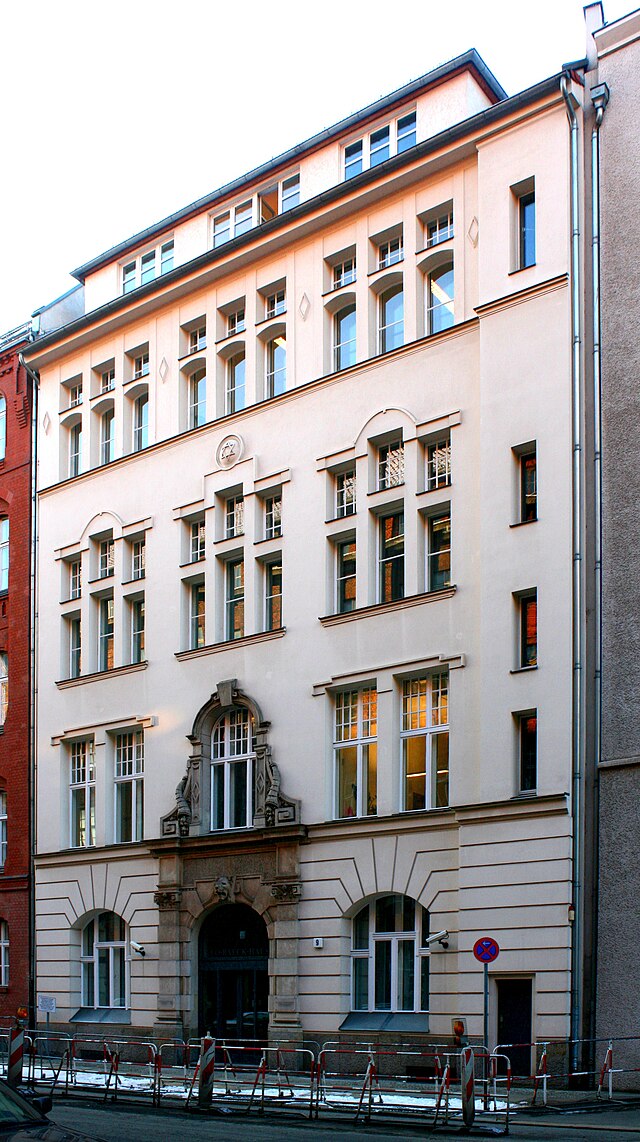Hochschule für die Wissenschaft des Judentums
Jewish Studies Research Center and Rabbinical Seminary in Berlin From Wikipedia, the free encyclopedia
Jewish Studies Research Center and Rabbinical Seminary in Berlin From Wikipedia, the free encyclopedia
Hochschule für die Wissenschaft des Judentums, or Higher Institute for Jewish Studies, was a rabbinical seminary established in Berlin in 1872 and closed down by the Nazi government of Germany in 1942. Upon the order of the government, the name was officially changed (1883–1923 and 1933–42) to Lehranstalt für die Wissenschaft des Judentums.
This article includes a list of references, related reading, or external links, but its sources remain unclear because it lacks inline citations. (April 2014) |

Abraham Geiger, who had been active in establishing Reform Judaism, wanted a university for Jewish studies in Berlin. Unable to become part of the University of Berlin, he was involved in 1870 in creating a separate institution. Also involved were David Cassel, Israel Lewy, Moritz Lazarus and Heymann Steinthal, the Jewish "intellectuals" and professors at the University of Berlin.
Geiger's "General Introduction to the Science of Judaism," "Introduction to the Biblical Writings" and "Lectures on Pirḳe Abot" were originally delivered as lectures at the seminary. Some of the best German-Jewish teachers taught there in the spirit of the Wissenschaft des Judentums movement: Hanoch Albeck, Ismar Elbogen, Julius Grünthal, Julius Guttmann, Franz Rosenthal, Harry Torczyner, and Leo Baeck.
Moritz Steinschneider referred to the Hochschule as a "new ghetto of Jewish learning," which he felt could ultimately not produce the standards of scholarship achieved in the university setting.
Officially the institution was not affiliated with a movement or denomination. It sought free inquiry and research without any restrictions. It stood for a conservative Judaism, but its main object was the scientific study of things Jewish, freed as far as possible from denominational disputes. There was no religious test for professors but it was assumed that all of the faculty lived according to the Jewish tradition and were fluent in Hebrew. As the school was never dependent on any religious or public organization, the board was constantly engaged in raising money from wealthy contributors, sponsors of scholarly "chairs" and scholarships.
In 1872, the first year, there were only 12 students, including four women. In 1921, there were 63 full-time and 45 part-time students enrolled in the Hochschule. Many of the students came from Eastern European countries, notably Poland, as graduates of Orthodox Yeshivot. By 1930–33 the school had achieved so great a reputation that many non-Jews, especially Christian clergy, enrolled.
Seamless Wikipedia browsing. On steroids.
Every time you click a link to Wikipedia, Wiktionary or Wikiquote in your browser's search results, it will show the modern Wikiwand interface.
Wikiwand extension is a five stars, simple, with minimum permission required to keep your browsing private, safe and transparent.